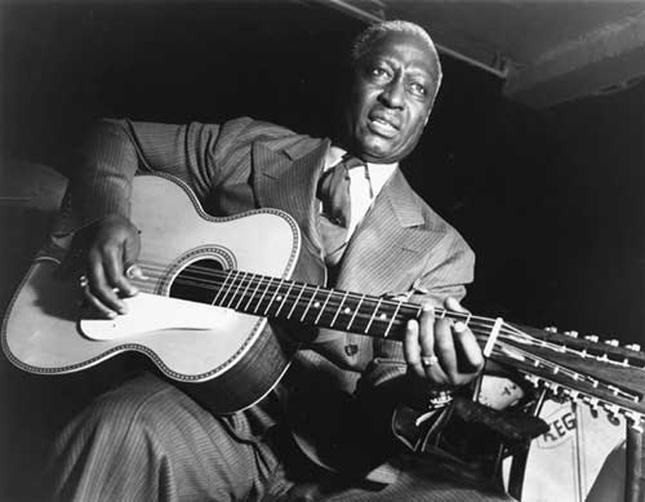‘Lead Belly at 125’: a Kennedy Center Salute to American Blues and Folk on April 25
By • April 28, 2015 0 1278

It’s been a big year for Lead Belly, the hugely influential blues and folk singer and musician who was born 125 years ago on Jan. 20 as Buddy William Ledbetter to Wesley Ledbetter and Sally Brown on the Jeter Plantation near Mooringsport, Louisiana.
In February, the Smithsonian Channel debuted a documentary about the legendary blues man, which included color footage of Lead Belly in a cotton field and tributes from contemporary artists like Judy Collins, Roger McGuinn, Robby Kreiger and Van Morrison.
Also in February, Folkways records released a five-disc boxed set in 140-page large format book,which amounted to a first full career retrospective.
On Saturday night, April 25, the Kennedy Center in collaboration with the Grammy Museum is producing and staging an all-star concert “Lead Belly at 125: A Tribute to an American Songster” in its Concert Hall at 8 p.m.
Headlining the musical tribute are a diverse crew of performers, songwriters, musicians and singers that cut across genres which is a good indication of the wide-ranging and long lasting influence of the blues giant.
On hand are Robert Plant (of Led Zeppelin) and folk and country star Alison Krauss (they collaborated on an album several years ago), Buddy Miller, Victor Krauss and Alvin Youngblood Hart, Bill Hector, Valerie June, Shannon McNally, Josh White, Jr., (son of folk legend Johns White), Dan Zane, and the bluesiest of female blues singers Lucinda Williams.
Lead Belly is one of the most stirring figures in American history—his time in prison, which included a stint at the sometimes infamous Angola, La., was often embellished in the tough times story-telling Depression. He wrote dozens of songs himself, played a 12-string guitar in masterful style, had a long-standing, often strained relationship with folklorists John Lomax and his son Alan.
Lead Belly wrote but also collected songs from memory that he heard in the South in his childhood and youth and put a distinct blues tinge on them—songs that became familiar to the entire country including “Midnight Special,” “Good Night, Irene”, “Take This Hammer,” a musical evocation of the hard life of men on the chain gang.
In 1949, Lead Belly passed away, but his influence was felt by the burgeoning rise of rock and roll, blues and folk singers, many of whom covered his songs—the list of songs and singers is like the biggest all-star rock and blues ever. The Beach Boys did “Cotton Fields.” Bryan Ferry and a host of others sang “Good Night Irene.” Creedence Clearwater Revival revived “Midnight Special” and “Cotton Fields,” and the list goes on and on from Elvis to Abba, to Pete Seeger, the Weavers, Harry Belafonte, Frank Sinatra, Johnny Cash, Bob Dylan, Tom Petty, Gene Autry, Odetta, Ron Sexsmith, Rod Stewart, Nick Cave and the Bad Seeds, the White Stripes (“Boll Weevil”), Old Crow Medicine Show, Meat Loaf, the Red Hot Chili Peppers and Kurt Cobain, who made a hit yet again out of “Where Did You Sleep Last Night.”
Lead Belly himself had a raspy, rich voice that went from casual to heartbreak in a few licks on the guitar. Many rock stars from the 1950 through the first part of this century acknowledged the debt which you can hear in their musical styles, their voices and lyrics and the guitar playing.

